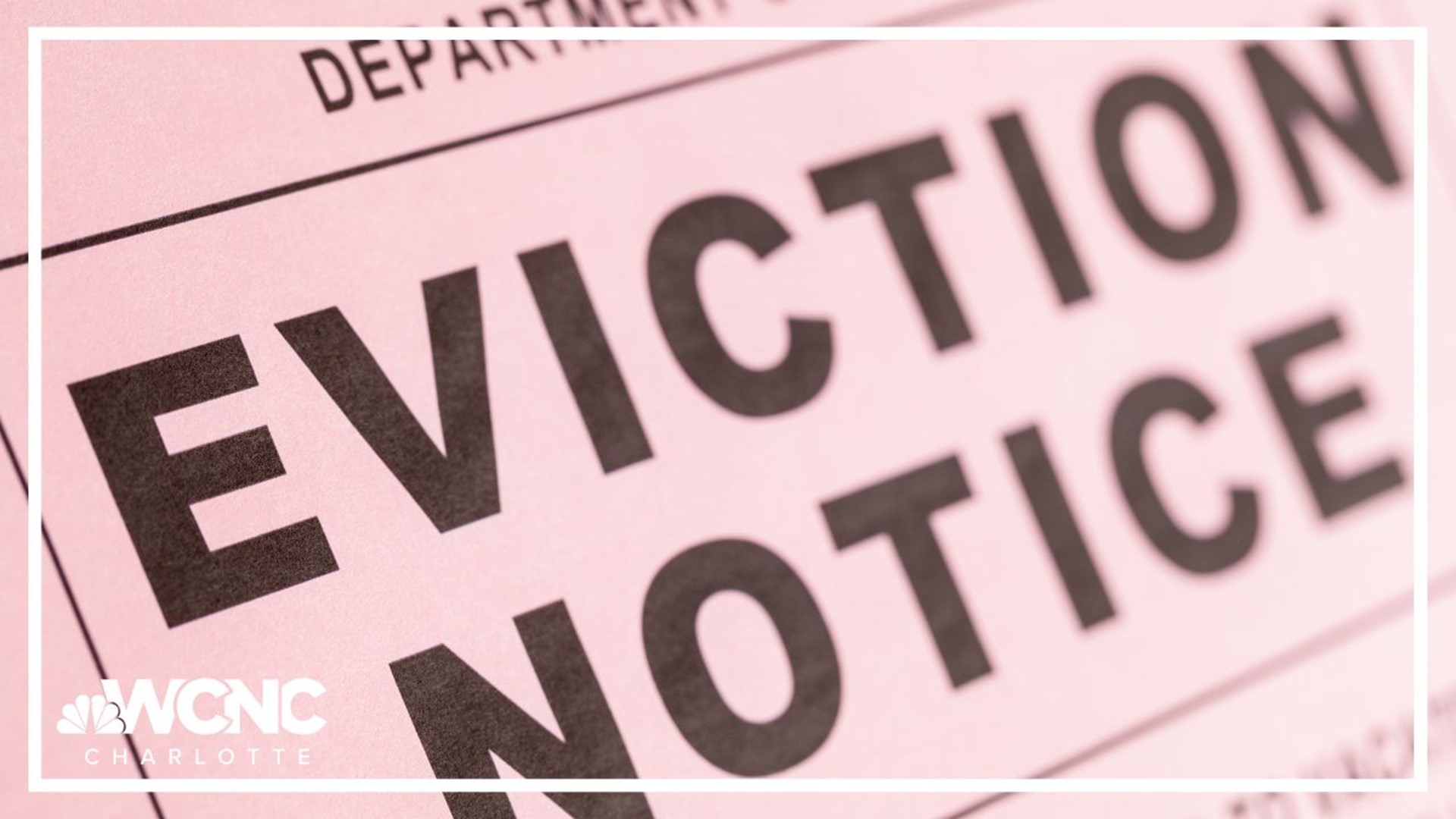MECKLENBURG COUNTY, N.C. — More and more people in Mecklenburg County are having to move out of homes they can't afford.
After a lull during the pandemic, eviction filings by landlords have come flooding back. Experts say it's driven by several factors, like high rents, and a lack of affordable housing.
“We have got to do something as a county, as a city, to combat this issue," Jessica Gibson, executive director for the Just Do It Movement, said.
“A lot of it is non-payment stemming from that cost of rent, rent has gone up exponentially and wages have not met that," Hanna Guerrier, community engagement coordinator for Legal Aid of North Carolina, said.
According to the Mecklenburg County Sheriff's Office, from the start of 2023 through mid-October, there have been 10,044 filings for eviction. That's up 36% from 2022. There have also been 6,905 evictions in Mecklenburg County, a nearly 24% increase compared to last year.
“I’m not surprised, unfortunately," Guerrier said.
At Legal Aid of North Carolina, they work to represent and inform tenants of their rights during the eviction process.
“Most landlords are represented; most tenants are not and that disparity is huge," Guerrier said.
In Mecklenburg County, eviction court happens every day. But with the recent rollout of e-courts, the process is slowing down due to a number of setbacks with the new system, like a delay in hearings.
Guerrier said that, at the moment, it works in the tenants' favor.
“We're okay with it taking a little longer because that is time we can use to help our clients look for rental assistance and negotiate something with their landlords," Guerrier said.
Meanwhile, grassroots organizations are working to keep people housed before having to step foot in the courtroom.
Leaders with the Just Do It Movement say that most of their clients face eviction due to the cost of rent, but there can be many reasons people have to leave their homes.
“They may fall on hard times, a family member just called me saying they got sick, they had a stroke, they couldn’t go to work, now I’m up for eviction," Gibson said.
Last month, the non-profit prevented three evictions from happening in the community, that's three people who won't have to be on the streets.
“Self-sustainability and self-sufficiency can’t even be obtained, no one can properly go to work and think about going to work if they don’t have a place to lay their head," Gibson said.
Once a person has an eviction on their record, it creates even more barriers for them to get into housing.
If you find yourself facing eviction, there are resources.
You can apply for help through Legal Aid of North Carolina by visiting their website or calling 866-219-5262.
Families and individuals can call 2-1-1 or 1-888-892-1162 to receive free and confidential information on health and human services within their community. NC 211 is an information and referral service provided by United Way of North Carolina.
Crisis Assistance Ministry also provides assistance and advocacy for people in financial crisis, helping them move toward self-sufficiency.
Contact Lexi Wilson at lwilson@wcnc.com and follow her on Facebook, X and Instagram.

